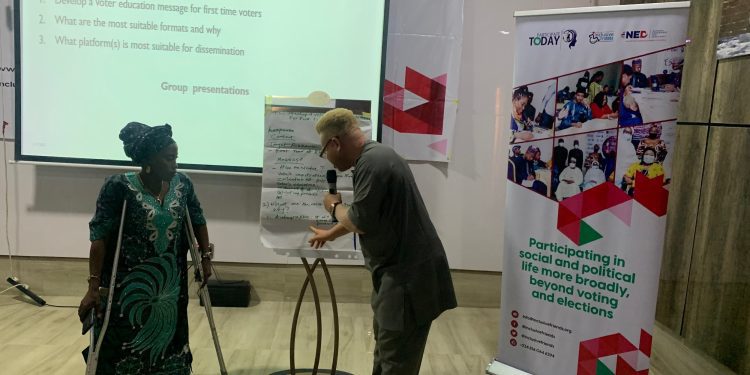The International Day of Democracy, observed every year on September 15th, serves as a poignant reminder of the fundamental principles that underpin our societies. It is a day to celebrate and promote the values of democracy, inclusivity, and equal participation for all. In Nigeria, this day carries special significance, as it offers a unique opportunity to reflect on our journey towards a more inclusive and equitable democracy, especially for people with disabilities.
Inclusivity as a Cornerstone of Democracy:
Democracy thrives when every citizen has a voice and the opportunity to participate in the decision-making process. However, in many parts of the world, including Nigeria, people with disabilities have often faced systemic barriers that hinder their full participation in the democratic process. These barriers range from physical accessibility issues to the lack of accessible information and communication tools.
Promoting Accessible Voting:
One of the critical aspects of fostering democracy for people with disabilities in Nigeria is ensuring accessible voting procedures. This means providing polling stations with ramps and other accommodations, as well as offering accessible voting materials, such as ballots in Braille or easy-to-read formats. NGOs and government agencies have made strides in this direction, but there is still work to be done to ensure that every person with a disability can exercise their right to vote independently and confidently.
Accessible Information and Awareness:
Another vital aspect of improving democracy for people with disabilities is the dissemination of accessible information about candidates, policies, and the electoral process. This can be achieved through various means, including using sign language interpreters during political rallies, producing informational materials in multiple accessible formats, and promoting disability-friendly communication strategies.
Empowering Advocacy and Representation:
The International Day of Democracy is also an opportune moment to acknowledge the advocacy efforts of organizations and individuals working tirelessly to empower people with disabilities in Nigeria. These advocates strive to ensure that the voices and concerns of people with disabilities are heard and taken into account by policymakers. Moreover, they work towards increasing the representation of people with disabilities in political and decision-making positions.
Conclusion:
The International Day of Democracy is a reminder of the core principles of democracy: participation, inclusivity, and equal representation. In Nigeria, we must renew our commitment to these principles by continually working to break down barriers that limit the participation of people with disabilities in our democratic processes.
By promoting accessible voting, providing information inclusively, and empowering advocacy, we can move closer to a Nigeria where every citizen, regardless of their abilities, can fully engage in shaping the future of our great nation. On this day, let us reaffirm our dedication to a more inclusive democracy in Nigeria, where the voices of all citizens, including those with disabilities, are valued and heard.
Stephen Idoko is the Diversity, Equity and Inclusion Advisor at Inclusive Friends Association. He writes from Abuja and can be reached at sidoko@inclusivefriends.org


It is important to ensure the inclusion of persons with disability in governance.